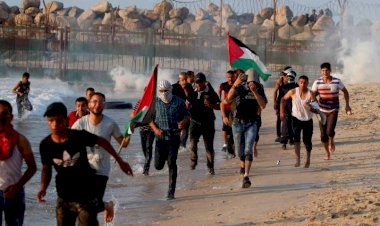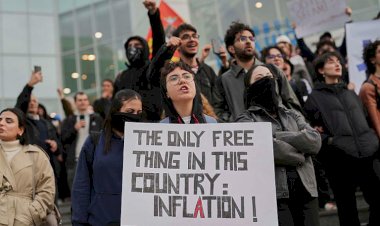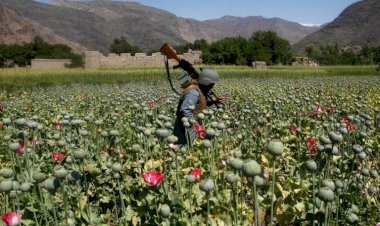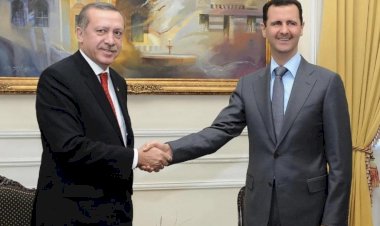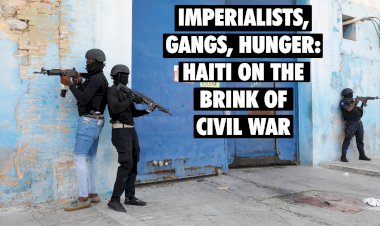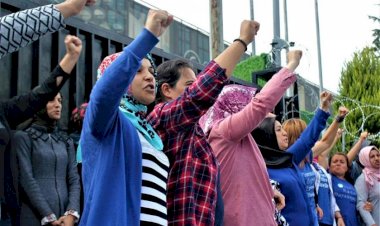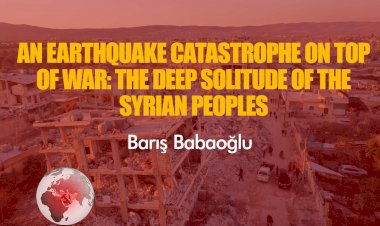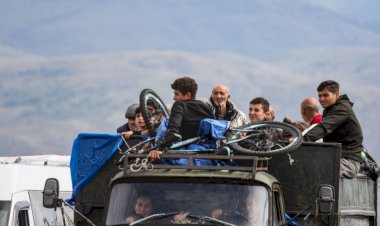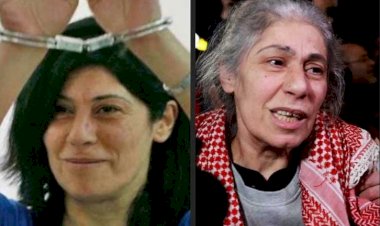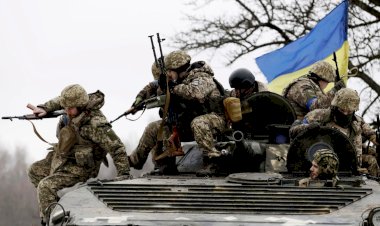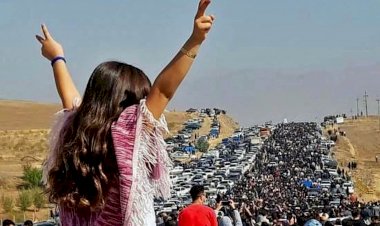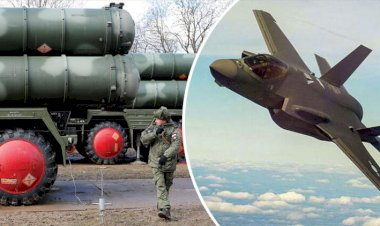Turkey Towards the Election
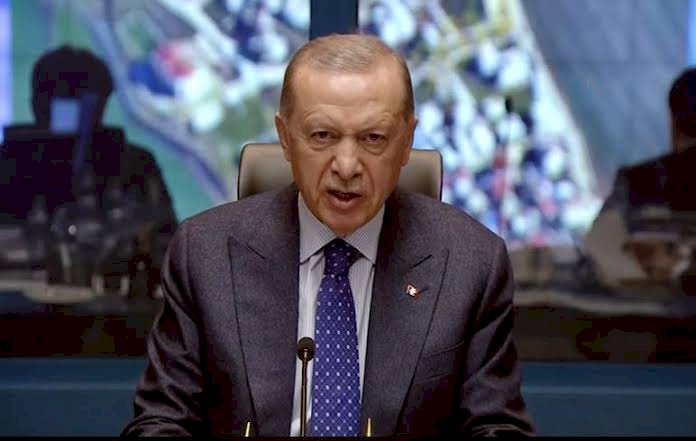
There are only 2 months left until the most critical elections in Turkey's history. There are many people in the world trying to follow what is going on in Turkey. With this article, we will try to provide international readers with a better understanding of the situation in Turkey.
Erdogan and his fascist partner MHP are at risk of losing power, at the upcoming presidential and parliamentary elections. The economic crisis, the emergence of corruption and gangs, and finally, the extreme insufficiency of the state in the disaster of the great earthquake, brought social discontent to a high level. Aside from these troubles, the bourgeois opposition bloc (Nation Alliance) seems to have finally overcome the crises among themselves and united around CHP leader Kemal Kılıçdaroğlu. At the time of this writing, Kemal Kılıçdaroğlu had caught the wind. It is not clear whether this will be prevalent until the election. In a country like Turkey, even one day is too long, and it is not clear what extraordinary events we will experience until the elections. Apart from that, whether Erdogan will accept a possible electoral defeat is dubious.
Now let's try to summarize the economic situation, the developments related to the earthquake, the political actors, the class struggle and the situation of the socialists.
Economic Crisis, Corruption and Gang-State
Turkey is going through one of the biggest inflationary periods in its history. The people are experiencing a rapid impoverishment process, as the inflation, which is over 100%, greatly reduces the real wages of the workers. Even the official statistics agency, which lied openly on orders from the AKP, shows inflation as 55%. There is an annual price increase of up to 300% in housing, food and transportation, which are the biggest expenditure items of the working people. On the other hand, the fact that the AKP and a number of large conglomerates clustered around it achieved super-wealth with a large corruption economy gets reactions from the majority of the society. Although these oligarchs, who are the tender champions of the AKP, are known as “gang of five” in the society, they are actually more in numbers.
On the other hand, a large corruption network has formed from the top of the state to the lower levels. The statements made by a former mafia leader on YouTube, who revealed the government's relations with drug barons because of his discord with the AKP, aroused great repercussions in the society. But with the UAE silencing this person living in its own country, these revelations that shook the AKP were stopped. In return, Erdogan cut his support for the Muslim Brotherhood, which he loved so much. With the effect of the economic downturn, Erdogan made great concessions to other despots (Saudis, Sisi, Israel and the UAE) with whom he was at odds in the region. In return, he borrowed money from these countries to prevent the economy from completely collapsing until the elections. Putin also provided critical assistance to Erdogan in this regard. For example, natural gas payments were delayed for one year. A significant amount of debt was also taken from Qatar. In this way, a new and destructive devaluation of TL was postponed. However, with the inevitable devaluation and inflation that will make a new leap after the elections, the bill that the people will have to pay will be quite large.
In these difficult conditions, Erdoğan trusted the state stick the most. Two names stood out in this regard. The first of these was Erdoğan's partner MHP leader Devlet Bahçeli. Erdogan has worked with many partners to keep him in power during his 20-year rule. These include the traditional big bourgeoisie, the EU, the USA, the Gülen community that attempted a coup in 2016, left liberals and even the implicitly Kurdish national movement. Erdogan, who left all these past unions behind with bloody fights, is finally with the fascist MHP. MHP's support is vitally important for Erdogan, who needs 50% of the votes in the presidential elections. That's why the MHP, which had around 7% of the votes in the opinion polls, reached enormous power. It was effective both in influencing the policy of the AKP government and in staffing in the bureaucracy. The MHP, which is fiercely hostile to the Kurdish people and the left, and has a highly organized street force, is making efforts to organize the regime in the form of an open fascist dictatorship. Interior Minister Süleyman Soylu, who has close ties to the MHP, was also the symbol of state repression, and never fell off the agenda with his connections with mafia leaders. Although Erdogan actually has a substantial conservative Kurdish voter base, he had to endure the extremism of the MHP. The last of these was a reckless political assassination that shook all of Turkey. Former Grey Wolves leader, whose execution order was issued in an organization that was clearly directed by the MHP from the top, was assassinated in the most protected area of Ankara by a hitman affiliated with drug gangs. The fact that the shooter came to Ankara in a police vehicle and the perpetrators were hidden in the house of a MHP deputy created a shock effect in the society and caused great reactions against the MHP. The AKP government had to gloss over the situation. In summary, the AKP regime is causing economic crises with its lousy economic management, and while the state apparatus is completely decaying, corruption and gangs are rampant in the country.
State Collapsed in Earthquake
After the big earthquake that hit Kocaeli, the industrial heart of Turkey, in 1999, the bourgeois order put an emphasis on the so-called earthquake preparation. In reality, nothing was being done. The effect of the economic crisis, which intensified with the earthquake, was great when the AKP came to power in 2002. But it was understood in this last big earthquake that AKP had not made any preparations since 2002. The necessary reinforcements and evacuations were never realized, as building inspections were not carried out. On the contrary, the AKP government regularly gave licenses to unsound and illegal structures. This was both a gift to the nature-plundering bosses in the touristic areas, a form of asking votes from the petty bourgeoisie, and providing hot money, as you were asked to deposit a certain down payment for the license application. In this way, exactly 7 million unsound residences were licensed. The huge taxes (collected in the name of ‘earthquake taxes’) had already been spent elsewhere. Corruption, which pervades everywhere, has brought with it the construction of new rotten structures. It should be stated that a significant part of the destroyed buildings was newly built. Persistent warnings of scientists for years show that this was a disaster in the making. Some scientists even pointed the epicenter of the earthquake and called to action. But nothing was done.
After the disaster, it was another fiasco. State institutions that played an important role in such great disasters and even non-governmental organizations that were active in search and rescue were disabled by the AKP. It was mind-blowing nonsense that the army, the most organized and most numerous unit to respond to such a major earthquake, was kept in the barracks. As a matter of fact, the state apparatus collapsed. As many cities were destroyed, tens of thousands of people waiting to be rescued under the rubble died calling for help. For the most part, there was neither an excavator nor a search and rescue unit. Citizens who struggled to save people were helpless in the face of large concrete blocks. Although the total number of dead is around 46,000 in official figures, everyone knows that the real number is much higher. A governor of the state has already admitted in front of the cameras that the real number is 4-5 times higher than the announced one. Apart from this, the survivors of the earthquake did not receive the necessary assistance for weeks. The people themselves took action to fill this vacuum of the state. In particular, the non-governmental organization AHBAP, led by a famous rock singer, became the focus of aid campaigns. Because no one trusted the AKP and its organizations that had turned into centers of corruption. This made the AKP extremely uncomfortable. Such cash flow to AHBAP were revealing the AKP's debacle, and AHBAP was silenced by defamation and threats. Again, this smear campaign was carried out by AKP media and MHP.
On the other hand, it was promising that the social solidarity and mobilization was so high against the AKP, which polarized the society, silenced it with threats and corrupted it with vandalism. Particularly, the active involvement of socialist organizations in the field was heard by all segments of society and created a great sympathy. There has been a serious increase in the prestige of socialists, who have been labeled as marginal and terrorist in the traditionally right-wing sectors. Our party SEP was one of the leading organizations in these activities. Our party still continues its presence effectively.
Elections and Bourgeois Opposition
At the time of this writing, the bourgeois opposition bloc (Nation Alliance) seemed to have overcome internal conflicts after great fights, upheavals, and compromises. The pressure brought by the deep anger of the people against the AKP prevents this alliance from falling apart. At the same time, the bourgeois normalization of the system is embodied in the Nation Alliance. The alliance's economic policies emphasize commitment to the free market. Although it is not emphasized much in foreign policy, the pro-Western bias is clear. The most emphasized issues of the alliance are the return to the parliamentary system and the expansion of democratic rights. Apart from this, the return of the principle of merit and the discourse against corruption come to the fore. With this political content, the Nation Alliance expresses the restoration of the bourgeois system. This is the political program that big capital groups, which are cowardly and parasitic in countries like Turkey, cannot fight for. On the other hand, there are important forces within the state apparatus that would support such a restoration, although they could not speak out.
We can list the 6 parties that make up the Nation Alliance as follows:
CHP (Republican People’s Party): The Kemalist party, which is the leader of the Nation Alliance. Composed of different social bases and ideological groups, this party liquidated its nationalist wings under the leadership of Kemal Kılıçdaroğlu, who became chairman in 2010. This liquidation process has parallels with the liquidation of the nationalist military-civil bureaucracy in the state apparatus. After this process, the Party assumed a "social democrat" identity, which was nothing more than social-liberal statism, as in the whole world. Kemal Kılıçdaroğlu, who will be Erdoğan's opponent in the elections, rallied around other bourgeois parties and took a play-making role in the bourgeois opposition. Kılıçdaroğlu, as a former bureaucrat who does not have much of a charismatic side, has also been at the center of discussions with his Alevi and Kurdish identity. The CHP, which traditionally has a vote rate of around 25%, has managed to win a significant portion of the big cities, especially the 3 big cities Istanbul, Ankara and Izmir, in the 2019 local elections with the alliances it has formed. The Kurdish national party HDP contributed greatly to this success.
IYIP (Good Party): This nacionalist party was founded when those who were uncomfortable with the MHP's alliance with the AKP left the party. The support of the CHP played a major role in overcoming the bureaucratic obstacles that were brought before the party during its establishment. With around 14% of the votes in the latest polls, IYIP is the second largest party in the Nation Alliance. The party's nationalist leadership has always been in sharp opposition to the Kurdish issue and its relations with the key party HDP. The party, which competed with the CHP about Kemal Kılıçdaroğlu being the joint candidate of the Nation Alliance, seems to have lost this fight.
SP (Felicity Party): The traditional party of the Islamist petty bourgeoisie in Turkey. Although it has almost completely lost its vote base to the AKP, it has a strong cadre network. And moreover, it hopes to be the natural address of Islamists after the possible dissolution of the AKP. It came to the fore as the party with which Kemal Kılıçdaroğlu worked most harmoniously. Its reactionary ideas on women's rights were taken seriously within the Nation Alliance.
DP (Democratic Party): A party with a symbolic meaning, mostly because it bears the name of the historical centre-right party.
DEVA (Democracy and Progress Party): Party of former economy minister Babacan, who left the AKP. It refers to the supposedly successful first period of the AKP as a conservative liberal party. It stands out with its emphasis on free market, pro-Westernism and its reformist line on the Kurdish question. It has around 3% of the votes in the polls.
GP (Future Party): The party of former prime minister Davutoğlu, who left the AKP. He is the architect of the terrible Syria policy during the period of the Ministry of Foreign Affairs. He has a conservative right-wing line. It has around 1-2% of the votes in the polls.
If the Nation Alliance wins the elections, they will have to face the big economic problems left by the AKP. The currency loss in the country is huge. At this point, their only hope will be the entry of foreign capital into the country. In a period when hot money is withdrawn all over the world, they will have to follow market-friendly, anti-labor social cut policies. Among them may be an agreement with the IMF. Between the pressure of the lower classes, who will be more self-confident to organize protests and strikes after Erdoğan, and the pressure of free market, it seems quite possible that the new power will be stuck and have crises within itself. It is obvious that the possible internal crises that may occur under the possible power of the Nation Alliance will be one of the most important issues of Erdoğan's election campaign.
Kemal Kılıçdaroğlu claims that 418 billion dollars were stolen from the treasury during the AKP rule and promises to "take 418 billion dollars and put this country's money in the safe, whatever the cost." It is impossible for Kılıçdaroğlu to stand behind this promise, as the corruption is not limited with the oligarchs of the AKP, but extends to all the big capital groups in Turkey. But of course, the working class should not let go of this promise and should push Kılıçdaroğlu into the corner.
Class Struggle and Socialists in Turkey
Workers took important actions at the beginning of 2022 to protect their purchasing power, which has eroded in the face of the rising cost of living. Workers' actions, led by couriers, continued, spreading across different sectors, and workers were able to gain, albeit partial, in most of these struggles. On the other hand, it was not possible for these actions to expand by gaining a political character. In this process, the possible actions of the urban poor and shopkeepers were a great danger for the AKP because the target of the actions would not be this or that boss, but the AKP government itself. However, even though the social tension increased, there were no outbursts of anger that spilled into the streets. There were two factors in this. First, the intimidating authoritarianism of the AKP government acted as a deterrent to these groups. The second was the widespread belief that street protests would benefit the AKP. The idea that large protests would be brutally suppressed and that the AKP would use this process to become even more authoritarian and perhaps cancel or steal the elections had an impact on the masses. The Nation Alliance made extensive use of this propaganda. The masses were advised to wait for the elections and send Erdoğan by voting. There is no doubt that this offensive policy strengthens Erdogan.
HDP, Socialists and Revolutionary Attitude
HDP was the party worst affected by AKP authoritarianism. The pressure on the HDP escalated after the urban wars that started with the end of the "solution process" with the AKP in 2015. The state of emergency after the failed coup attempt on 15 July 2016 brought great pressure to the entire social opposition, especially the HDP. Thousands of HDP members, including HDP's most influential figure, Selahattin Demirtaş, and deputies, are still in prison. In addition, trustees were appointed to almost all of the municipalities that HDP won in the 2019 elections. At the end of this process, HDP is not even allowed to protest, and the support of the base continues, albeit passively.
Even though HDP was not invited to the Nation Alliance in this process, it did not hesitate to support this bloc against Erdoğan. Statements are made to support Kemal Kılıçdaroğlu for the upcoming elections. Everyone knows that HDP, with around 12-13% of the vote, is the key party in the election. This situation is also Erdogan's nightmare, because if the HDP voters support Kemal Kılıçdaroğlu as a bloc, Kemal Kılıçdaroğlu can take the lead in the first round.
The HDP is not only a party that defends the national rights of the Kurds, but also a force that wants to lead and shape the leftist movements in Turkey. It can be said that it has achieved this to a great extent. Of course, this leadership brings with it the abandonment of independent class politics, the adoption of post-modern identity politics, and the ignoration of HDP's ties with national and international sovereign powers. The negative roles played by the HDP in the union bureaucracy (KESK and DISK) are also on the agenda. The HDP gives about 10 parliamentary seats to socialist groups, and those who cooperate with the HDP get certain positions in the union bureaucracy. But as a result of this cooperation, socialist organizations lost a lot of power, significancy, and distinctiveness. The exception to this was TİP (Workers' Party of Turkey) , which emerged after the TKP (Communist party of Turkey) was split into two. This exception was about the fact that even though the TİP MPs were elected by HDP lists, they resigned from the HDP and spoke independently on behalf of their own parties. As TİP deputies appeared on opposition TV channels with their anti-AKP statements, they became the center of attention, and the party became an important center of attraction. The problem here is related to the content of the TİP. TİP, a Syriza-type mass party, often tried to act as a bridge between HDP and CHP and attracted attention with the generous support it gave to Kemal Kılıçdaroğlu and the icon of Mustafa Kemal Atatürk. However, the assertiveness shown in the statements was never demonstrated in the active class struggle. TİP, which is an election party, does not have cadres and party organizations to train and mobilize the flow of people towards it, nor does it have such an intention. In the Labor and Democracy Alliance, which is now led by the HDP, a competition will begin between the groups on how to share the representatives. The future of TİP will be shaped mainly as a result of this sharing.
Another electoral formation on the socialist left is the Union of Socialist Forces. The main emphasis of this alliance, led by the TKP, was the protection of secularism and the achievements of the Republic. The Union of Socialist Forces, which is active mostly in the regions where the well-educated Kemalist middle classes live, has no claim in the upcoming elections.
Our party, the SEP, is trying to build a third way on the left that expresses a militant internationalist tradition committed to an independent class perspective. Our party has an influence that shows its difference and strengthens with firm steps in the working-class neighborhoods, unions, university campuses and city centers where it is active. In these elections, we will campaign for our own independent candidates with the title "Down with the System of Debris, Socialism is the One Solution”. In the meantime, we will continue to object to the cooperation with the bourgeois parties against Erdogan and try to prepare the organized struggle of the working classes against the austerity expected after the elections.



